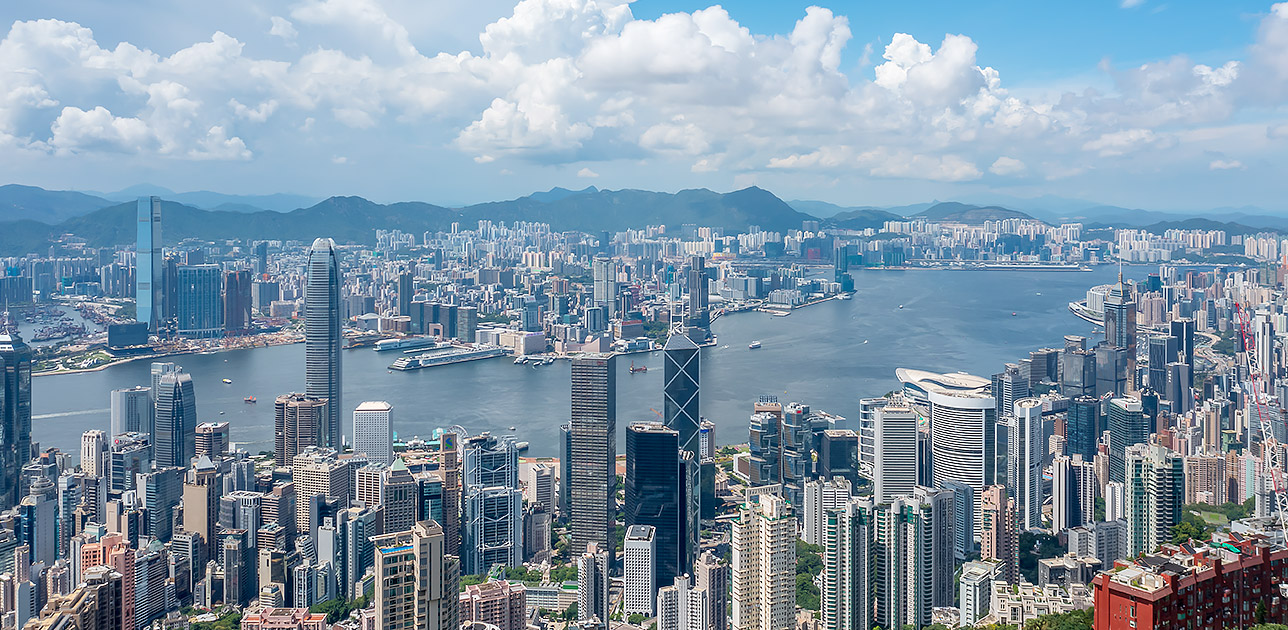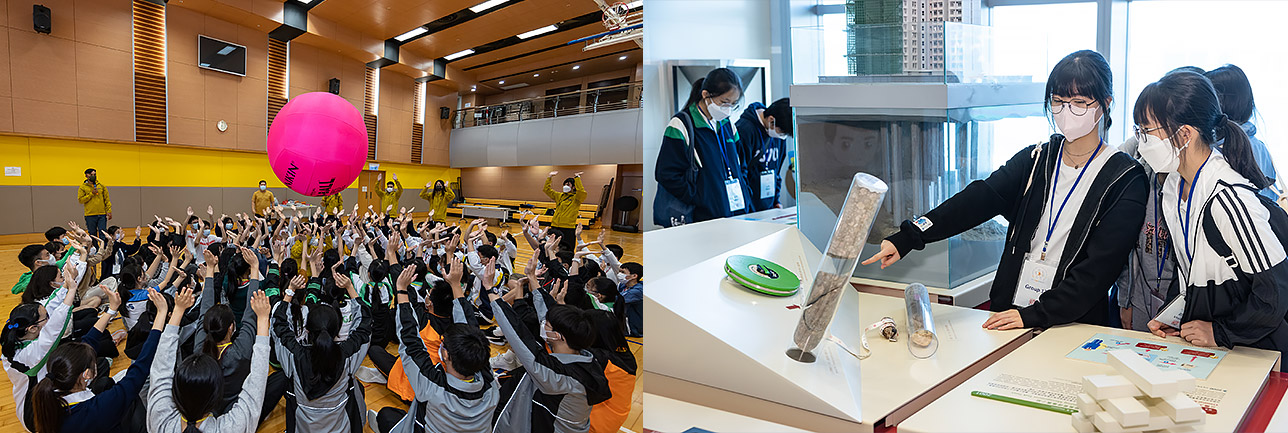
Hong Kong went through ups and downs in 2022, having treaded through the fifth wave of the epidemic in the first half of the year and gradually returned to normalcy as the border between Mainland and Hong Kong fully reopened.
In 2022, the ICAC remained steadfast and continued to enforce the law rigorously. Apart from discharging its anti-corruption duties, the Commission also strived to prevent criminals from endangering national security through illegal acts facilitated by corrupt means. As ever, the ICAC is committed to maintaining Hong Kong as a corruption-free and competitive economy, as well as one of the cleanest places in the world.
The corruption situation in Hong Kong continues to be well under control. In 2022, a total of 1,835 corruption complaints (excluding election complaints) were received by the ICAC, representing a drop of 429 complaints (or 19%), while pursuable complaints also went down by 300 (17%) to 1,438 when compared to 2021. There was an across-the-board decline in the number of corruption complaints concerning the government sector, public bodies and private sector, in particular in the latter. The ICAC believed the decrease was attributable to dwindling economic activities caused by the fifth wave of the pandemic in early 2022, which was similar to the situation at the onset of the pandemic outbreak in 2020.
The civil service and public bodies in Hong Kong remain clean and honest in general. In 2022, corruption complaints involving government bureaux/departments decreased by 17% from 645 to 533 while corruption complaints concerning public bodies decreased by 12% from 137 to 121. The ICAC will continue to enhance integrity training for principal officials, bureaux/departments to entrench the probity culture of the public sector and to strengthen the public’s confidence in the government.
In 2022, corruption complaints concerning the private sector declined by 20% from 1,482 to 1,181. The three sectors which attracted most complaints were Building Management, Construction Industry, and Finance and Insurance. The ICAC has always attached great importance to corruption complaints relating to people’s livelihood. Despite a drop in the number of complaints concerning the aforementioned sectors, considerable resources were devoted to tackle those cases through law enforcement, early intervention and preventive education.







Under the improved electoral system, the 2021 Election Committee Subsector Ordinary Elections, the 2021 Legislative Council General Election, the 2022 Chief Executive Election and 2023 Rural Representative Election were held smoothly. In 2022, the ICAC received 20, 96, five and 14 complaints respectively regarding the four elections, of which 20, 96, five and 12 were pursuable.
In 2022, 11 persons were prosecuted for election offences and 12 persons convicted for breaches of election offences. Twenty-two persons were given warnings for minor breaches of electoral offences which mainly related to election expenses.
In order to curb any acts that may constitute offences of manipulating and sabotaging an election, a new provision, Section 27A of the Elections (Corrupt and Illegal Conduct) Ordinance, was introduced in 2021 against “inciting not to vote, or to cast invalid votes, by activity in public during an election period”. As of early March, nine persons were charged for breaching the offence upon investigation by the ICAC and all of them were convicted. One person was formally cautioned. The above enforcement results demonstrated the ICAC’s commitment and dedicated efforts in safeguarding clean elections. Meanwhile, the Commission also adopted a preventive and intervention strategy. ICAC officers were deployed at polling stations on polling days for handling public enquiries and complaints on the spot and monitoring the vote-counting process to ensure the elections were conducted in a fair, open and clean manner.
“When young people thrive, Hong Kong thrives”. The ICAC continues to promote moral education programmes for young people at different developmental stages, from kindergartens to tertiary education institutions. Through various activities, including “i Junior Programme for Primary Schools”, iTeen Leadership Programme for senior secondary students and the “iPLUS” Youth Development Project – training programme for ICAC Ambassadors from tertiary institutions, important values such as rule of law, law-abidingness, and honesty are cultivated. Young people are also encouraged to better understand the country’s development and nurture a sense of nationality, as well as national identity.

The ICAC maintains close collaboration with overseas anti-corruption agencies (ACAs) in the fight against corruption and provides capacity building training to graft-fighters in the Belt and Road countries. In 2022, as the pandemic gradually stabilised, the Commissioner resumed official visits to ACAs in Singapore, Malaysia and Thailand to tell them the good stories of Hong Kong. In December, the ICAC also organised a face-to-face financial investigation specialist training course in Hong Kong for Southeast Asian countries.
Since the then ICAC Commissioner assumed presidency of the International Association of Anti-Corruption Authorities (IAACA) in January 2022, the ICAC was dedicated to promoting the implementation of the Regional Coordination Mechanism.
In addition, ICAC Commissioner and the Commissioner of the Commission Against Corruption of Macao met in Hong Kong in late February this year to strengthen the collaboration. As cross-border travel has resumed, the ICAC will step up exchanges with counterparts in the Mainland and Macao to tie in with the implementation of national development and anti-graft policies.
Over the years, the ICAC has become the go-to expert for anti-corruption training courses. Numerous training were hosted for overseas ACAs and local law enforcement agencies to enhance their capacities in fighting corruption. To further promote Hong Kong’s probity culture and anti-corruption experience, the ICAC is consolidating existing resources and facilities to set up an International Anti-corruption Academy, Hong Kong (the Academy) to provide systematic and sustainable anti-corruption training courses for graft fighters from overseas ACAs and local law enforcement agencies. Specialised training will also be offered to local public and private sectors in order to widely promote and deepen the probity culture. The Academy will also serve as a platform for overseas counterparts to learn about the determination and achievements of the country and Hong Kong in graft-fighting work. The ICAC also plans to leverage the Academy to enhance surveys on Hong Kong’s integrity level through international platforms, so that Hong Kong’s probity situation would be truly reflected and the city’s good story be told to the international community. Last but not the least, the ICAC will actively explore to integrate training provided by the Academy into accredited programmes.
The year 2024 will mark the golden jubilee of the ICAC’s establishment. Through a series of activities, including an international symposium, Open Day, TV drama series, a commemorative publication and public engagement activities, the ICAC will showcase to the local and international communities its strong determination in eradicating corruption and the hard-earned success of Hong Kong in its anti-graft journey.
With the full reopening of borders, Hong Kong’s economic development and people’s livelihood are returning to normalcy. ICAC officers will remain steadfast and unwavering. Through a three-pronged approach of law enforcement, corruption prevention and education, they will continue to safeguard Hong Kong’s probity environment.
